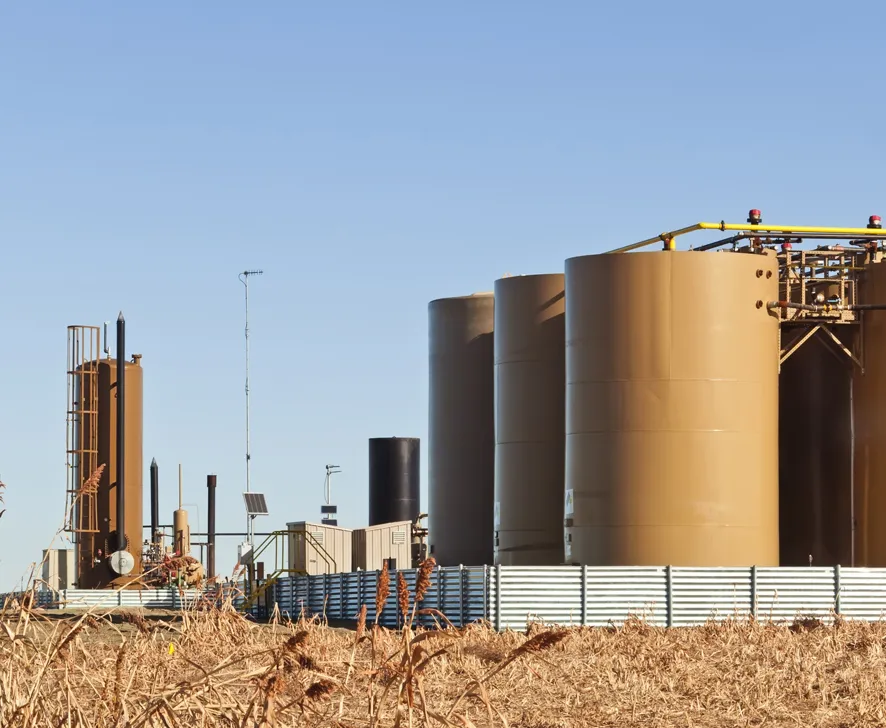Oil prices go negative, spelling trouble for oil-reliant local economies
Prices for a barrel of West Texas Intermediate oil dropped negative for the first time in history Monday morning, signaling drastic times ahead for portions of Colorado that rely on the energy industry for economic stability.
Around noon Mountain Time Monday, the benchmark price for American-produced oil hit $0 and later dipped to a low of minus $38.45, according to Bloomberg commodities data. It is the culmination of a month-long production battle between Saudi Arabia and Russia, the second and third-largest oil producers behind the U.S.; and the steep decline of fuel demand as much of the world’s largest economies tell their citizens to stay home as much as possible.
Traders were desperate to not be left holding a trading contract that would require them to take delivery of oil as refiners sounded alarms over dwindling capacity to store newly produced oil. A frenzy of selling ensued, leading sellers to pay other people to take on contracts.
SPONSORED CONTENT
The U.S. Energy Information Administration’s Rocky Mountain region was at 60% of its overall storage capacity as of April 10, according to most recent data, while the national storage capacity was 57% full. Both of those figures were 10% lower in mid-January.
Cushing, Oklahoma, is the country’s largest intersecting hub of West Texas Intermediate oil and the epicenter of the country’s oil storage capacity. It was at 69% capacity as of mid-April compared to 43% in mid-January.
Negative prices could draw further cuts to capital projects and jobs from major oil producers in Weld County, which are rapidly drawing down costs after setting budgets in January assuming oil prices above $50.
PDC Energy Inc. (Nasdaq: PDCE) and Noble Energy Inc. (Nasdaq: NBL) both have cut capital expenditures by 50% this year and made various layoffs, while Whiting Petroleum Corp. (NYSE: WLL) filed for Chapter 11 bankruptcy this month in an effort to restructure long-term debt.
In a statement, the Colorado Oil and Gas Association said the price drop is indicative of the broader global uncertainty in the economy caused by the spread of the novel coronavirus.
“We need to effectively address this health crisis and get people back to work, so that global markets can begin to function again,” it said.
Richard Werner, president and CEO of the Weld County-area economic development group Upstate Colorado, said the inability for oil producers to sell crude fuel on the market poses a dire threat to the county’s tax base. Weld County taxes oil production at a two-year lag, so the loss of revenue at the county level will be felt starting in 2022.
In the meantime, Werner expects to see further cuts to production and planned capital expenditures for new wells, which likely means industry layoffs and effects to other businesses that serve the oil workers, such as restaurants.
In the short term, Werner said the county is looking to temporarily defer property tax payments and reduce interest on that tax through October, but that requires approval from the Colorado Legislature.
He is also hoping Congress approves another stimulus package, including Paycheck Protection funds, to provide county businesses another way to find the credit to manage a major blow to their revenue sources, and to see a larger effort to test for the novel coronavirus nationwide.
“We can get into a more stabilized economy, we can return to a cycle of production that’s at a level that’s more in line with recent history,” he said.
© 2020 BizWest Media LLC
Prices for a barrel of West Texas Intermediate oil dropped negative for the first time in history Monday morning, signaling drastic times ahead for portions of Colorado that rely on the energy industry for economic stability.
Around noon Mountain Time Monday, the benchmark price for American-produced oil hit $0 and later dipped to a low of minus $38.45, according to Bloomberg commodities data. It is the culmination of a month-long production battle between Saudi Arabia and Russia, the second and third-largest oil producers behind the U.S.; and the steep decline of fuel demand as much of the…




